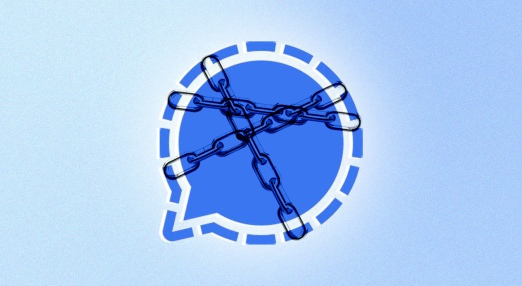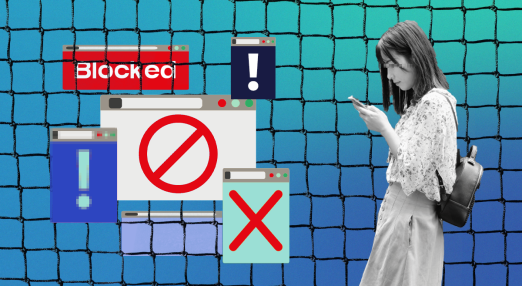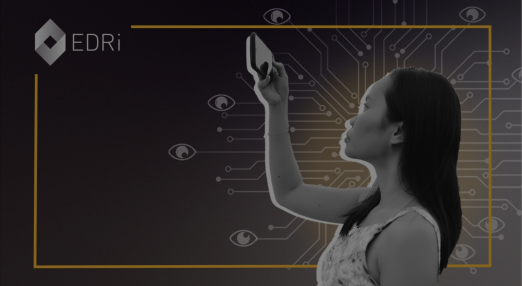The European Commission threatens to undermine the core values of the free and open internet
On 8 June, 34 civil society organisations from 17 countries published a joint statement to raise their concerns with Commissioner Magreth Vestager’s and Commissioner Thierry Breton’s public statement to alter the regulatory framework underpinning the free and open internet.
Filter resources
-

The European Commission threatens to undermine the core values of the free and open internet
On 8 June, 34 civil society organisations from 17 countries published a joint statement to raise their concerns with Commissioner Magreth Vestager’s and Commissioner Thierry Breton’s public statement to alter the regulatory framework underpinning the free and open internet.
Read more
-

EDRi-gram, 8 June 2022
In this edition of the EDRi-gram, EDRi and over 70 civil society organisations and professional bodies urge the European Commission to withdraw the CSA Regulation and call for an alternative that is compatible with the European Union's fundamental rights. The European Commission needs to understand that playing with online privacy and security affects everyone, including the very children it is supposed to help. Join us in our efforts to protect encrypted communications, open internet spaces and online anonymity.
Read more
-

EDRi-gram, 25 May 2022
In this edition of the EDRi-gram, we urge the European Parliament to make good use of the chance that the AI Act offers to regulate harmful border technologies and truly protect people on the move. We also dive deeper in the needy-greedy details of the European Commission's recent proposal for a ‘Regulation laying down rules to prevent and combat child sexual abuse’ which creates major risks to the privacy, security and integrity of private communications, not just in the EU, but globally.
Read more
-

Belgium wants to ban Signal – a harbinger of European policy to come
Last week, the Belgian government launched a proposal that would ban Signal. What's going on?
Read more
-

EDRi-gram, 4 May 2022
In this edition of the EDRi-gram, we urge the European Parliament to vote down the expansion of Europol's powers to prevent the enabling of mass surveillance. We also explore what could go wrong when a billionaire decides to buy one of the largest social media platforms. Join us in celebrating the success of EDRi member Defesa dos Direitos Digitais who got the Portuguese Constitutional Court to declare the unconstitutionality of the Portuguese data retention law.
Read more
-

Twitter Has a New Owner. Here’s What He Should Do
Elon Musk’s purchase of Twitter highlights the risks to human rights and personal safety when any single person has complete control over policies affecting almost 400 million users. And in this case, that person has repeatedly demonstrated that they do not understand the realities of platform policy at scale.
Read more
-

What happens next with upload filters in the EU after the CJEU copyright ruling
On 26 April, the Court of Justice of the European Union delivered its judgement on one of the most relevant cases for freedom of expression in recent years: Case C-401/19- Poland v Parliament and Council. The case was brought by Poland after the adoption of the controversial copyright Directive, and specifically because of its Article 17 that, according to EDRi and other civil society organisations, academics and politicians, could lead to mandatory use of upload filters on most online platforms.
Read more
-

Putting the brakes on Big Tech’s uncontrolled power
Will 2022 go down as the year the EU tamed Big Tech? In the very early morning hours of Saturday, 23 April, after 16 hours of final negotiations, EU lawmakers reached an agreement on the Digital Services Act (DSA), which is certainly a watershed moment for our digital future. As the deal reached is a top-level political agreement, the final text of the law is yet to be released.
Read more
-

EU negotiators approve good DSA, but more work is needed to build a better internet
Friday night’s political agreement on the Digital Services Act (DSA) is a good first step towards protecting people’s rights on the internet and to some extent limiting the immense power that Big Tech companies have over people and democracies.
Read more
-

EDRi-gram, 20 April 2022
In this edition of the EDRi-gram, we look at how you can influence the AI Act in order to ban biometric mass surveillance across Europe. We also raise our concerns with the new Cybercrime Protocol which threatens to undermine our privacy to compensate for the rising powers of law enforcement authorities. Don't miss out to learn who the biggest data sinners of the last year are, join the German Big Brother Awards 2022. In previous years, the Big Brother Awards have placed a spotlight on threats to privacy and basic rights, including loyalty cards, credit scoring, toll cameras, colour photocopiers or mobile phone surveillance.
Read more
-

EDRi-gram, 6 April 2022
In this edition of the EDRi-gram, we look at what the facial recognition company Clearview AI is doing with our faces in the Ukrainian war and how we can put stop the private company from exploiting the war. We also urge the French Council Presidency to follow through on its promise to ensure that a final deal on the DSA prohibits the use of sensitive data, including the drawing of inferences about a person’s sensitive characteristics, to display advertisements.
Read more
-

The Domino Effect of Internet Blocking in Romania
The Council of the European Union’s decision, which came out on 1 March, to block access to the media outlets Russia Today (RT) and Sputnik, looking to stop the spread of disinformation, set forth a domino effect in Romania for internet blocking.
Read more
